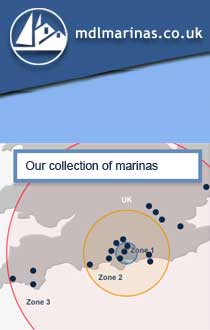Report from Diane Allen CQBHA Pontoon Representative)
Last week I attended a corrosion meeting organised by Frank Gelder (marina manager) with Stef from Sureline and 5 berth holders. I thought it might be useful to let people know how it went from my point of view.
Stef was very good at explaining a few facts and dispelling a few myths. For example AC current (Mains) does not cause corrosion of anodes in normal circumstances. It is the DC current (Battery) that causes stray current corrosion but it can only travel up to 3 metres in salt water on a diminishing scale.
If you are plugged in to the shore power you are connected to all other boats in the marina via the earth cable in the lead and subject to any stray voltage or electrical problems other boats may have which will cause your anodes corrode very quickly as they try to protect your propeller etc.
Therefore if your boat is not plugged in or has a galvanic Isolator then you cannot be affected by other boats in the marina. So if you are not plugged in and your anodes are disappearing quickly, the problem can only be coming from your boat.
Two concerned berth holders boats were tested first.
The first boat was in the yard and was tested and found to have a voltage leak in his stern drive. The second boat tested in its berth had a Mercruiser engine, shore power and water were tested nothing significant found. It was noted the trim-tab anodes fitted were not usually considered big enough to protect the drive.
We then inspected and tested every 5th boat on Pontoon A to D and every shore power unit. An earthing copper rod was put in the water and Stef took a metre reading. Any dodgy boats were tested and unplugged. Frank took note of them and was going to require them to be lifted out.
No hot spots or significant stray current was found. Previously I saw the anodes fizzing on a boat on C . Dave Wilson had that boat lifted out.
Stef said he would have liked to have found a problem to give us some answers but bearing in mind some problem boats had been lifted out before this test this may be the reason few issues were found.
Stef also pointed out that a berth holder could be there intermittently and plug in with a problem. A problem may not always be present. For example a boat with a bilge pump or battery charger leakage which would cut in and out. We could only test at that point in time.
We also noted that the water temperature in the marina reached 25 degrees during the test. Also, in last 2 years, there has been less rain. Saltier warmer water more conductivity = more general anode loss.
If you think you have a problem please contact Frank who will investigate. Please let the bertholder’s association know too. E mail – chairman@cqbha.org




